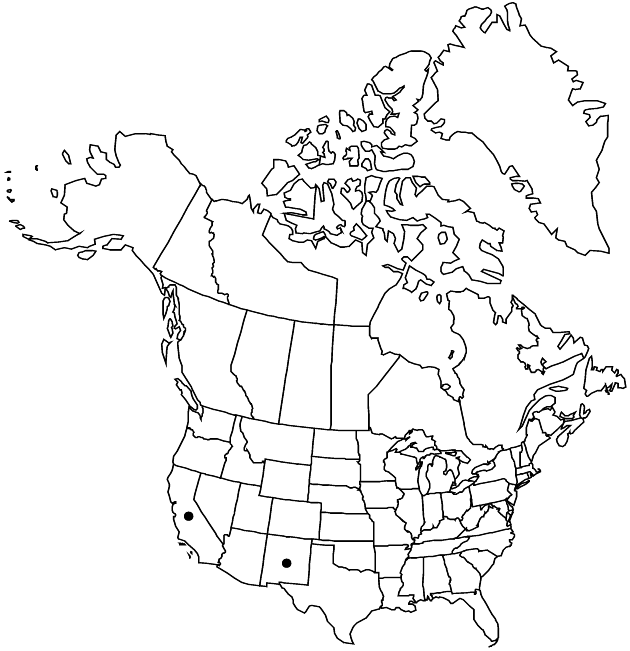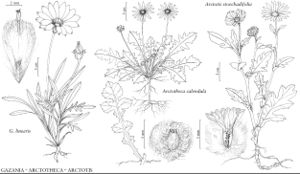Gazania linearis
Rep. Bot. Soc. Exch. Club Brit. Isles 4: 624. 1917.
Stems sometimes proximally woody. Leaves mostly basal; blades either linear to lanceolate and not lobed, 10–20(–38) cm × 6–10 mm, or oblanceolate to oblong and pinnately lobed, 10–20 cm × 25–50 mm, or both; bases usually attenuate, margins usually entire, sometimes ± prickly, revolute, midveins prominent, abaxial faces white-villous, adaxial faces glabrate to arachnose. Heads 3.5–8 cm diam. (across rays). Peduncles scapiform, (6–)10–30(–35) cm. Phyllaries: outer lanceolate, margins prickly-ciliate; the inner with margins undulate, ciliate, with ± submarginal dark stripe, cuspidate. Ray florets 13–18; corolla laminae yellow or orange, usually each with dark abaxial stripe and adaxial basal blotch or spot, (20–)35–42 × 10 mm. Cypselae 1–2 mm; pappi of 7–8 scales 3–4 mm.
Phenology: Flowering Oct–Jul.
Habitat: Roadsides, waste places, especially in urban coastal areas
Elevation: 0–400(–900) m
Distribution

Calif., N.Mex., Africa.
Discussion
Selected References
None.
